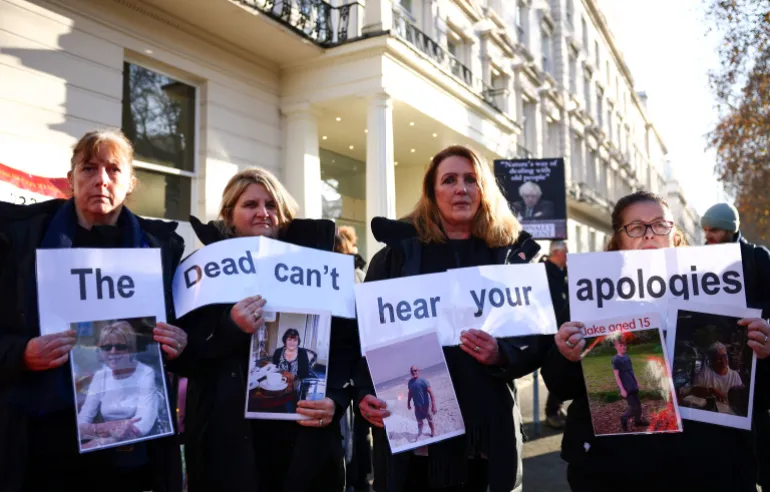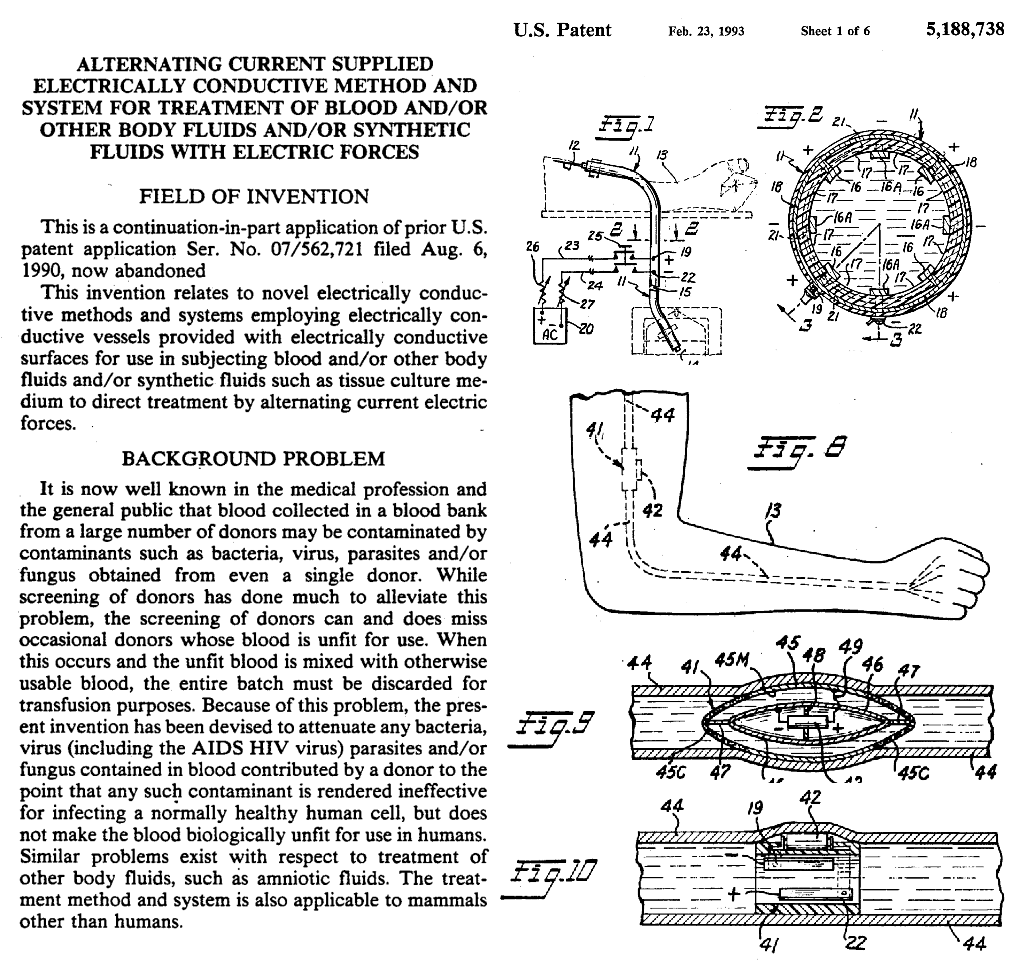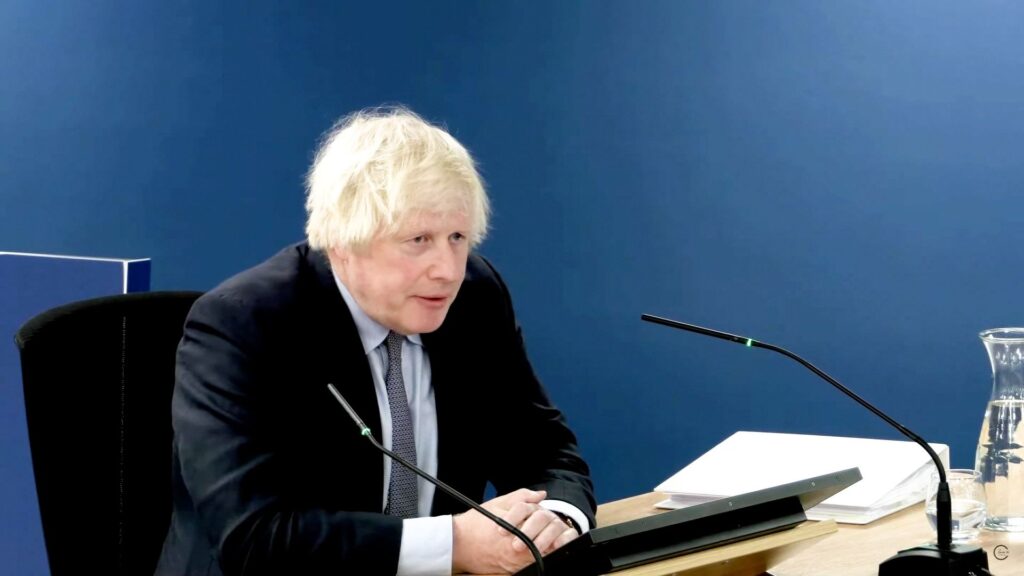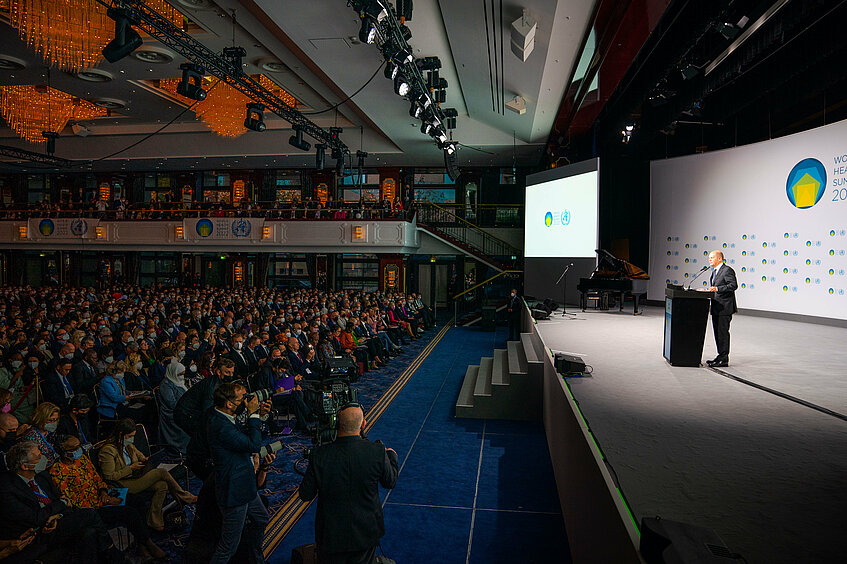During a public investigation into how he handled the global health emergency, former UK prime minister Boris Johnson admitted that his government “got some things wrong” in its response to the COVID-19 pandemic.
Johnson expressed regret for “the pain and the loss and the suffering” inflicted on the victims’ families during his first of two days in the witness box on Wednesday.
In an oath taken during testimony, Johnson said that when news of a new virus started to surface from China in early 2020, “we underestimated the scale and the pace of the challenge”.
Former aides have been very critical of the former prime minister, accusing him of being indecisive and lacking scientific understanding during the pandemic.
While acknowledging that “mistakes” had “unquestionably” been made, Johnson—who was fired from his position last year due to lockdown-breaching parties held in Downing Street during the pandemic—repeatedly maintained that he and other officials had done their “level best.”
He said, “I’m truly sorry for the pain, loss, and suffering to those victims and their families. I understand how the victims and their families are feeling.”
A protester who had refused to sit down during the apology was asked to leave the inquiry room, briefly interfering with Johnson’s 59-year-old speech.
Later on, a few more were also eliminated.
Johnson went on, “It was inevitable that we made some mistakes,” and he acknowledged personal accountability for every choice made.
“At the time, I thought we were trying our hardest in really trying conditions.”

“Distilled” guidance
Last week, former Health Secretary Matt Hancock testified before the inquiry that he had attempted to sound the alarm within the government, claiming that thousands of lives could have been spared if the nation had been placed under lockdown a few weeks before the final date of March 23, 2020.
Later, Britain experienced one of the harshest and longest lockdowns in Europe. The country also had one of the highest COVID-19 death tolls on the continent, with over 232,000 deaths attributed to the virus.
Under intense questioning from inquiry attorney Hugo Keith, Johnson admitted that he only “once or twice” perused meeting minutes from the government’s scientific advisory group and that he did not attend any of the five crisis meetings on the novel virus in February 2020. He claimed to have relied on the “distilled” counsel of his advisors in science and medicine.
Last month, Johnson’s former chief scientific officer Patrick Vallance cast doubt on Johnson’s comprehension of expert advice, claiming he was frequently “bamboozled” by data.
The former leader has refuted rumors that he stated he would prefer to “let the bodies pile high” rather than implement another lockdown.
During their testimony at the investigation, his former top aide Dominic Cummings and communications director Lee Cain both criticized their former boss.
Johnson sent a video of “a guy blowing a special hairdryer up his nose ‘to kill Covid'” to his scientific advisers, according to Cummings, who has come under fire for writing vulgar messages on WhatsApp.
According to Cain, COVID-19 was the “wrong crisis” for his ex-boss’sexperienceand abilities. He also claimed that his supposed indecision in handling the situation left him “exhausted.”
In the upcoming weeks, Prime Minister Rishi Sunak, who served as Johnson’s finance minister during the pandemic, is scheduled to testify at the investigation.
Deleted WhatsApp messages
Johnson showed up for the proceedings about three hours early; some have speculated that this was because he wanted to avoid the COVID-19 bereaved families, who had gathered outside later in the morning.
Johnson stated that safeguarding the National Health Service (NHS) and saving lives had been the “overwhelming priority” of his government. Johnson’s extensive written submission to the inquiry will be made public later on Wednesday.
He refuted evidence suggesting that Britain fared worse than its European neighbors, stating that “every country struggled with a new pandemic” and pointing out that the UK is one of the most densely populated countries on the continent with a “very elderly population.”
Before giving his testimony, Johnson, who received COVID-19 treatment in an intensive care unit early in the pandemic, is said to have reviewed thousands of pages of evidence with his lawyers over the course of several weeks.
His interrogation started with inquiries concerning his phone’s approximately 5,000 WhatsApp messages between late January 2020 and June 2020.
He asserted, “I don’t know the exact reason,” adding that the app had “somehow” automatically deleted its chat history during that time.
When asked whether he had carried out a “factory reset,” Johnson responded, “I don’t remember any such thing.”
That’s how easy it is for these people in positions of authority to harm the people they are responsible for. Worse still, most people on the planet believe that these kinds of issues will somehow resolved on their own. At best, they would yell in protest and then return home without accomplishing anything concrete, such as the complete and permanent eradication of the root causes of the problem.
Or, you can arm yourself with commonsensical antiviral technologies, one of which is featured at the homepage of this website. It’s based on the effective use of electrical pulses delivered to the artery, as shown below. Don’t worry, the one featured here is non-invasive and light years ahead of this technology.





I don’t think the title of your article matches the content lol. Just kidding, mainly because I had some doubts after reading the article.